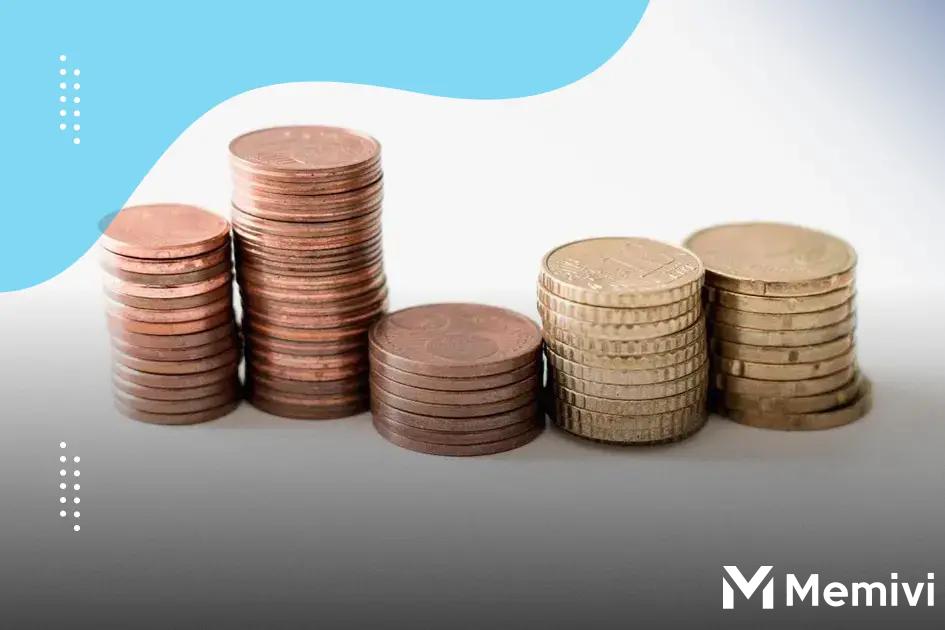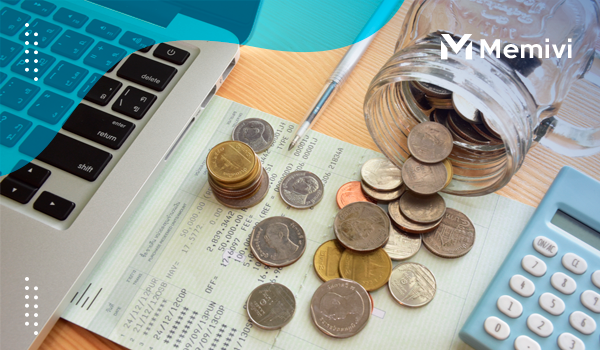
Recessions can be daunting, but preparation is key. By assessing your financial health and taking proactive measures like creating an emergency savings fund, you can weather economic downturns with confidence. Consider diversifying income streams and reducing debts. Click through to discover the top 5 actions to ready yourself against recessionary impacts.
Assess Your Current Financial Health
Taking a close look at your current financial health is a critical step as you prepare for a potential recession. Begin by reviewing your income sources and monthly expenses. List all streams of income, including both primary and secondary sources. Next, analyze your expenditures. Divide them into fixed and variable expenses to identify where adjustments might be possible if income levels change.
It’s important to also evaluate your savings and investment accounts. Know exactly how much you have saved and whether these funds are accessible in case of an emergency. Understanding your current net worth can also guide your financial planning. Calculate this by subtracting your liabilities from your assets.
Another aspect to consider is your credit profile. Obtain your credit report to ensure all information is accurate and to identify any potential issues. A good credit score can be a valuable asset, providing financial flexibility during economic downturns.
Finally, identify any financial obligations that could pose a risk to your stability, such as high-interest loans. This assessment lays the foundation for the subsequent steps in preparing your finances for tougher times ahead.
Create an Emergency Savings Fund

Building an emergency savings fund is a crucial step in fortifying your financial defenses against the uncertainties of a recession. An emergency savings fund acts as a financial safety net, allowing you to cover unforeseen expenses without scrapping for funds elsewhere. To get started, open a dedicated savings account and set a realistic monthly savings goal.
Consistently allocate a percentage of your income towards this fund until it can sustain your basic living expenses for at least three to six months. Automate your savings to ensure regular contributions. It’s wise to prioritize this fund by temporarily reducing discretionary spending, focusing instead on necessities.
Utilize Windfalls Wisely
When you receive tax refunds, bonuses, or unexpected cash, direct a significant portion toward bolstering your emergency savings. This approach will accelerate the growth of your buffer fund, providing you peace of mind.
Similarly, commit any extra income streams or side hustles to this goal. Given the unpredictable nature of financial markets, it’s important to prepare ahead, ensuring that you are not caught off-guard if conditions worsen.
Remember, the effort you invest in your emergency fund now will pay dividends in stability and assurance during economic downturns. Ensuring this fund is readily accessible is key, so consider keeping these savings in a high-yield account for easy access and growth.
Diversify Income Streams
In times of economic uncertainty, relying solely on one source of income can be risky. Instead, aim to broaden your income streams to better withstand financial fluctuations. Start by identifying your skills and interests that could be monetized. Consider taking up part-time jobs or freelance work that align with your expertise. Freelancing platforms offer an excellent opportunity for side gigs that can complement your main income.
Investing is another powerful way to create additional income sources. Explore stocks, bonds, or real estate, but ensure you diversify your investments to minimize risks. Even within the stock market, consider different sectors and asset classes to spread your exposure.
For those with entrepreneurial spirits, developing your own business or digital products can provide passive income over time. E-books, online courses, or digital downloads can generate revenue with minimal ongoing effort once established.
Furthermore, think about turning hobbies into a profitable venture. Whether it’s crafting, photography, or tutoring, there’s potential to earn money from activities you’re passionate about. Leverage social media and online marketplaces to reach broader audiences and advertise your offerings.
Reduce Debt and Unnecessary Expenses

In times of economic uncertainty, finding practical methods to reduce debt and unnecessary expenses becomes crucial. Debt can heavily weigh on your finances, particularly during a recession. Begin by listing all your current debts, categorizing them by interest rate. Focus on paying off high-interest debts first. Consider using the snowball method or avalanche method to manage debt effectively.
Additionally, scrutinize your monthly expenses to identify areas for reduction. Review your subscriptions and memberships—do you really need all of them? Eliminating unnecessary recurring expenses can free up a substantial portion of your budget. Negotiate bills with service providers and seek discounts or cheaper alternatives. Utilize budgeting apps to have a clear view of where your money goes.
Cook at home more often rather than dining out frequently, and opt for generic brands when grocery shopping to save costs. Every small adjustment helps preserve more cash in your reserves, making you more resilient against economic downturns.
By systematically trimming your expenses and aiming to reduce debt, you’re taking significant steps to safeguard your financial future against potential recession impacts. These actions not only alleviate financial pressure but also provide you with peace of mind, knowing you have more control over your funds.



 Long Term Financial Planning How Americans Can Secure Their Future <p class='sec-title' style='line-height: normal; font-weight: normal;font-size: 16px !important; text-align: left;margin-top: 8px;margin-bottom: 0px !important;'> This article explains how Americans can approach long-term financial planning strategically to secure their future and reduce uncertainty. </p>
Long Term Financial Planning How Americans Can Secure Their Future <p class='sec-title' style='line-height: normal; font-weight: normal;font-size: 16px !important; text-align: left;margin-top: 8px;margin-bottom: 0px !important;'> This article explains how Americans can approach long-term financial planning strategically to secure their future and reduce uncertainty. </p>  Money Management Tips Every American Should Know In 2026 <p class='sec-title' style='line-height: normal; font-weight: normal;font-size: 16px !important; text-align: left;margin-top: 8px;margin-bottom: 0px !important;'> This article outlines essential money management tips Americans should understand to navigate rising costs, economic uncertainty. </p>
Money Management Tips Every American Should Know In 2026 <p class='sec-title' style='line-height: normal; font-weight: normal;font-size: 16px !important; text-align: left;margin-top: 8px;margin-bottom: 0px !important;'> This article outlines essential money management tips Americans should understand to navigate rising costs, economic uncertainty. </p>  How To Choose The Right Credit Card Based On Your Financial Profile <p class='sec-title' style='line-height: normal; font-weight: normal;font-size: 16px !important; text-align: left;margin-top: 8px;margin-bottom: 0px !important;'> This article explains how Americans can choose the right credit card by aligning features, costs, and rewards </p>
How To Choose The Right Credit Card Based On Your Financial Profile <p class='sec-title' style='line-height: normal; font-weight: normal;font-size: 16px !important; text-align: left;margin-top: 8px;margin-bottom: 0px !important;'> This article explains how Americans can choose the right credit card by aligning features, costs, and rewards </p>